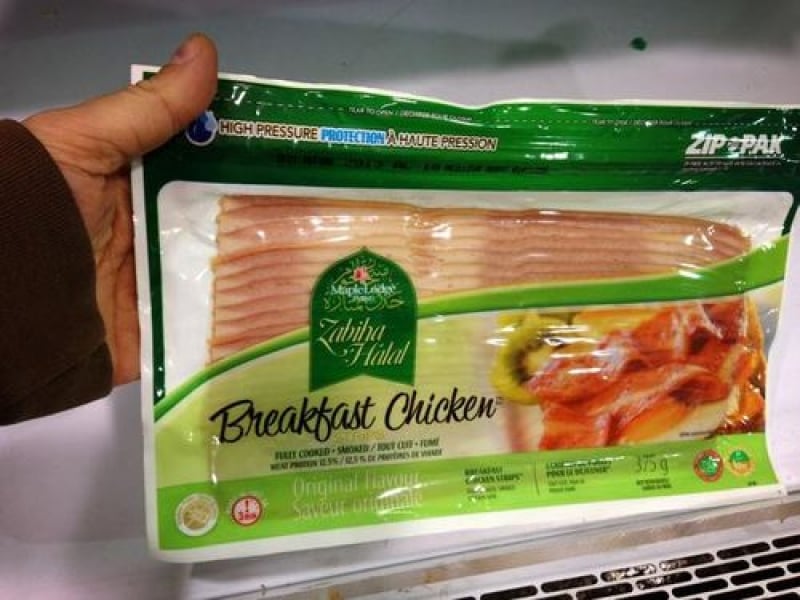Many of our Muslim friends may come to realise that shopping for Halal or Muslim-friendly food items in a European supermarket can be challenging because of our special dietary requirements. Therefore, we have prepared this handy guide to help you better understand the things you need to know or look for when shopping in a European supermarket.
1. The Halal section
Although this is a straightforward suggestion, not all of us do this simply because we doubt the existence of this section! But in fact, most well-known supermarkets have a dedicated section for Halal meat and other items. If you are not sure, ask the staff and he/she may be able to direct you to it. So remember, the first thing you should do in a supermarket is to look out for the Halal section.
2. The Halal sign

Image credit: miguelb
The most obvious thing to look for in a product is the Halal logo. This logo is usually the three-letter word in Arabic that is printed on most of the Halal-certified products. This stamp provides Muslim consumers with the affirmation that the product is suitable for consumption as they have followed the Islamic practices of food preparation. Although it’s not so common to see this logo on most products at a European supermarket, it’s a good starting point. Who knows, it might be your lucky day! Personally, I make it a point to stay away from meats without the Halal logo.
3. The phrase “suitable for vegetarians”
One of the most common information placed at the back of any packaged product is whether they are suitable for vegetarians or not. If you see the logo or wordings, it means that the food/drink is free from animal derivatives and are therefore “suitable for vegetarians”. Given that a considerable proportion of the population in Europe are moving toward the trend of vegetarianism, it is common for producers to place this sign on products that meet the criteria.
But what does this have to do with it being Halal? Well, if the product is in fact suitable for vegetarians, it can be safe to assume that there’s no animal derivative and therefore the chance of animal fat (especially pork fat) being used in the product is totally eliminated. Thus, vegetarian-friendly foods are suitable for consumption by Muslim consumers too.
4. The food ingredient numbers (E-numbers)
This is another important piece of information that a Muslim consumer could look for in a product. Most products have a list of ingredients that make up the product. It is common knowledge that some products use food additives to enhance the features of the product such flavour and colouring. Some are plant-based and are therefore Halal whereas some are derived from animal fat which may not meet the criteria. Each additive has been specified an E-number which you can look up to see if they are suitable for consumption or not. Here’s a list for your reference.
5. The country of origin
Many products in Europe are imported from other countries, including the Middle East. It can be safe to assume that products imported from the Middle Eastern countries follow the Islamic practices of food preparation. So just take a moment to find out where the country of origin is; if it’s from one of the Middle Eastern countries, such as Qatar, Turkey, United Arab Emirates or Egypt, it is most likely going to be Halal.
This list may not be complete, but can surely provide you with some guidance in finding Halal or Muslim-friendly food. Hopefully, it will make you more confident about choosing the right items the next time you shop at a supermarket.





